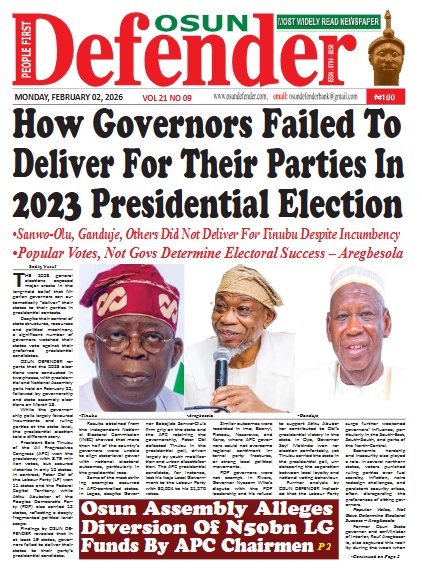First Year Of Tinubu’s Govt Worsened Nigeria’s Macroeconomic Stability – Atiku

Former Vice President, Atiku Abubakar has criticised the administration of President Bola Tinubu during his first year in office.
According to him, Nigeria, Africa’s leading economy has slipped to the 4th position, lagging behind Algeria, Egypt, and South Africa within 12 months of Tinubu’s administration.
He described the last year of the All Progressives Congress, APC-led administration in Nigeria as a “cocktail of trial-and-error economic policies.”
Atiku, who was the candidate of the Peoples Democratic Party (PDP) in the 2023 presidential election, said despite the promises made by Tinubu to “remodel our economy to bring about growth and development through job creation, food security and an end of extreme poverty,” things had gone from bad to worse in the country.
Atiku, in a statement titled, “Nigeria is not working: One year of Tinubu is a cocktail of trial-and-error economic policies,” decried that President Tinubu’s laid out no plans for the remodelling of the economy but soon embarked on a cocktail of policies to achieve it.
READ: ‘You Did Not Fare Better’, APC Attacks Obasanjo For Criticising Tinubu’s Reforms
He said that since May 29, 2023, “Tinubu has also spoken about growing the economy at double-digit rates to US$1 trillion in six years, ending misery, and bringing immediate relief to Nigeria’s cost-of-living crisis”.
He said, “On listening to this, Nigerians must have breathed a sigh of relief after their experience with ex-President Buhari’s 8 years of economic misadventure.
“In May 2023, he eliminated PMS subsidies, and a month later, the CBN implemented a new foreign exchange policy that unified the multiple official FX windows into a single official market.
“More policies followed in rapid succession: the tightening of monetary policy to reduce Naira liquidity, a hike in monetary policy rates, the introduction of cost-reflective electricity tariff, and a cybersecurity tax.
“Predictably, 12 months on, Tinubu’s pledge of growing the economy and ending misery remains unfulfilled. His actions or inactions have significantly worsened Nigeria’s macroeconomic stability. Nigeria remains a struggling economy and is more fragile today than it was a year ago. Indeed, all the economic ills – joblessness, poverty, and misery – which defined the Buhari-led administration have only exacerbated.”
“Citizens’ hopes have been dashed (and not renewed contrary to the propaganda of the administration) as Nigeria’s economic woes have multiplied.”
“How and why did we get here,” he questioned. “In my press statement on the state of our economy, earlier this year, I expressed my concerns about the downside risks of unleashing reforms without sequencing; without any ideas on how to implement them; and without any regards to their potential and real devastating consequences.”
He noted that implementing policies without proper planning and a clear destination “is nothing other than trial-and-error economics.”
“My concerns have not diminished. I will focus on just four areas to underscore those downside risks associated with Tinubu’s reform measures and their dire consequences on Nigeria’s medium to long-term growth and development.”

Hafsoh Isiaq is a graduate of Linguistics. An avid writer committed to creative, high-quality research and news reportage. She has considerable experience in writing and reporting across a variety of platforms including print and online.









